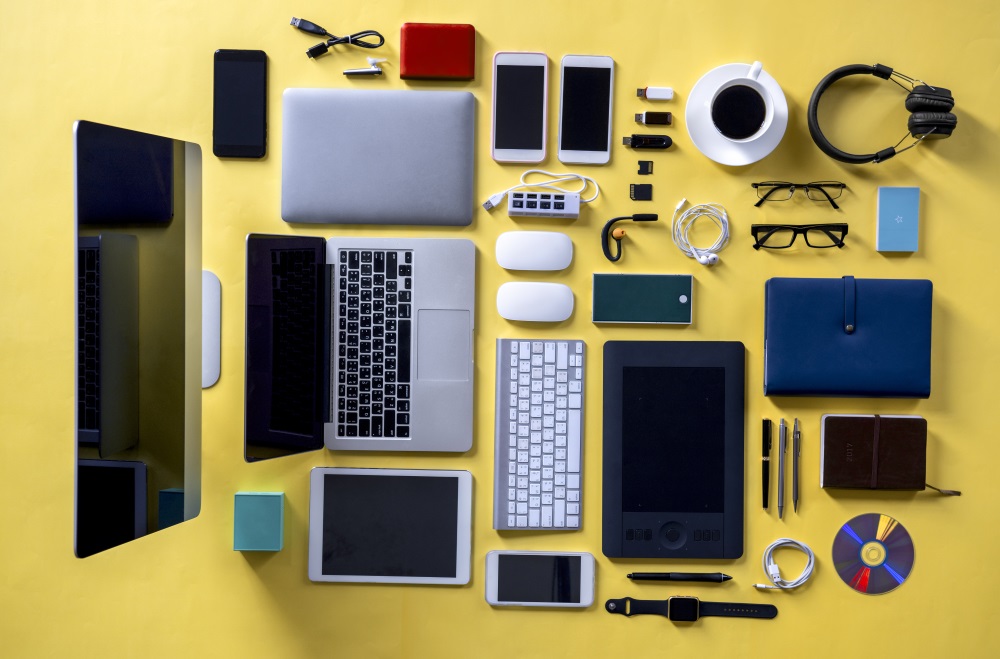Blitz News Digest
Stay updated with the latest trends and insights.
Gadgets So Cool They'll Make You Question Reality
Explore mind-bending gadgets that blur the lines of reality and redefine what's possible. Dive in and get ready to be amazed!
5 Mind-Bending Gadgets That Will Change Your Perception of Reality
In today's fast-paced technological world, mind-bending gadgets are redefining how we experience reality. Whether it's through immersive virtual reality headsets or advanced augmented reality devices, these gadgets offer unique ways to interact with our environment. For instance, the Oculus Quest 2 provides an affordable entry point into the VR universe, allowing users to explore vast imaginary landscapes and engage in thrilling games that feel incredibly realistic. Similarly, devices like the Microsoft HoloLens blend digital elements with the physical world, enabling users to overlay holographic images over real-life objects, thus altering their perception of everyday scenarios.
Moreover, not all gadgets that change perception rely on visuals alone; sound technology is equally transformative. The Oculus Quest 2 uses spatial audio to enhance immersion, allowing users to hear sounds from different directions, creating an even more convincing sense of presence. Additionally, innovative items such as the NeuroSky MindWave headset take user interaction to new levels, measuring brainwave activity to enable control of devices through thought. These technologies not only revolutionize entertainment but also open new avenues in education, therapy, and beyond, truly reshaping our understanding of reality itself.

Is Virtual Reality Changing the Way We Experience the World?
Virtual reality (VR) is undeniably transforming our perception of the world, offering immersive experiences that were once the realm of science fiction. From gaming to education, VR has redefined how we interact with our environment, allowing users to engage in a fully interactive 3D space. For instance, students can now explore historical sites or biological processes in a virtual setting, enhancing their understanding through firsthand experience rather than traditional learning methods. This revolution in experience is not limited to the classroom; it extends to industries like real estate, where potential buyers can tour properties from the comfort of their homes.
Moreover, VR is impacting fields such as therapy and training. Therapists are utilizing VR to help patients confront phobias in a controlled environment, creating opportunities for healing that were previously unimaginable. In the corporate world, companies are integrating VR into their training programs, offering unique opportunities for employees to practice skills in simulated situations, which enhances their learning and retention. As technology continues to progress, it's clear that virtual reality is not only changing the way we experience the world but also shaping our future interactions in countless, impactful ways.
The Future of Gadgets: What Innovations Will Redefine Our Reality?
The future of gadgets is poised to reshape our daily lives in ways we can scarcely imagine today. As innovation accelerates, consumers can expect advanced devices that enhance connectivity and interactivity. From smart home technologies that learn our habits to foldable screens that adapt to our needs, the next generation of gadgets will be more intuitive and user-centric. Innovations such as augmented reality (AR) and virtual reality (VR)
Moreover, the rise of artificial intelligence (AI) promises to drive further innovations that redefine our reality. Gadgets empowered by AI will not only anticipate our needs but also actively engage with us, making everyday tasks easier and more efficient. Think wearable devices that monitor our health in real-time or smart assistants that manage our schedules according to our preferences. As these technologies evolve, they will foster a smarter, more interconnected world where the line between the digital and physical realms becomes increasingly blurred.